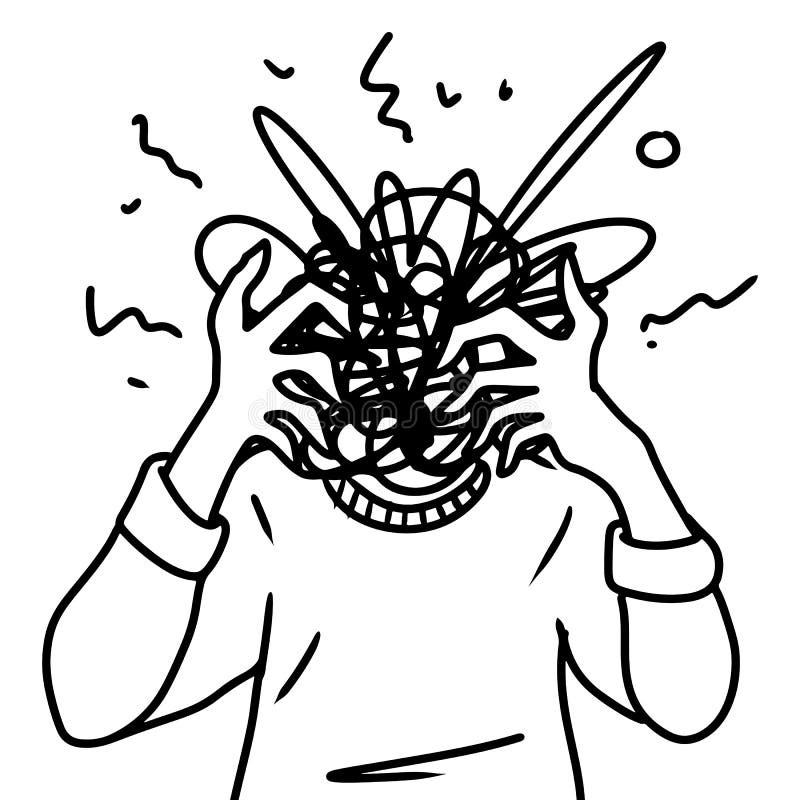Catastrophizing Fat: Why We View Gaining Pounds as Catastrophic, But Don’t See the Pain of Shedding Them
The belief that fat is always negative is so powerful that it can make the smallest amount of weight gain feel unbearably uncomfortable while the discomfort of intentional weight-loss gets diminished.
Welcome to the third installment of my new Substack vertical, VOLUMINATI. This vertical is a monthly series of experimental audiotextual (audio + text) essays. The full essay is available for paid subscribers. You can listen to this month’s edition by scrolling down to the bottom of the article and hitting play.
December’s edition of VOLUMINATI:
January’s edition of VOLUMINATI:
The “I Just Don’t Want To Have To Replace My Wardrobe” Conundrum
There’s a phenomenon I’ve noted as a recovering weight-cycler/food restrictor and a practitioner in the anti-diet space, and it is that the discomfort of fatness or weight gain is often acutely experienced while the discomfort of food restriction/intentional weight-loss is often minimized to a troubling extent.
A low-stakes example of this is what I’m going to call the “I just don’t want to have to replace my wardrobe” conundrum.
I’ve heard countless times how people don’t want to gain weight because they don’t want to have to replace their wardrobe. That’s understandable. It can be costly to replace one’s wardrobe. However, I’ve never once heard someone mention that they don’t want to lose weight because they don’t want to have to replace their wardrobe. In fact, for a person committed to weight-loss, replacing the clothing in their closet for a wardrobe comprised of smaller sizes seems to be something that inspires genuine excitement, despite the cost.
Herein lies the conundrum. If replacing one’s wardrobe is indeed a costly deterrent, then one would expect to see relatively equal numbers of people who mention it as an annoying byproduct of both weight-gain and weight-loss. And, yet, that’s not the case.
Likewise, dozens of people have told me that they pursue intentional weight-loss because being fat just “doesn’t feel right” or just “doesn’t feel good.” Some people aren’t able to be more detailed than that, while others report that they don’t like the sensation of a fat roll that wasn’t there before or that their ankles hurt. These are understandable reasons. It’s hard when your body changes, especially when those changes lead to discomfort. However, it’s much, much rarer to hear someone who’s attempting weight-loss share that they have decided to stop attempting weight-loss because the experience just “doesn’t feel right” or just “doesn’t feel good,” despite the fact that we know intentional weight-loss is correlated with things that objectively don’t feel good or right, such as lethargy, hair loss, loss of concentration, or low blood pressure. With GLP-1s, we can add to this list nausea, vomiting, and potential of gastroparesis.
No, GLP-1s Are Not Miracle Weight-Loss Drugs
I’ve grown increasingly alarmed watching what I can only call an inundation of pro-GLP-1 messaging across media outlets, with limited attempts at being unbiased or platforming people or groups who, l…
As someone who used to experience acutely negative emotions about fatness myself while I was a dieter, I know these emotions are very real. I can tell you firsthand that it’s very challenging to see the types of inconsistencies outlined above when you’re deeply entrenched in behaviors like intentional weight-loss.
The belief that fat is always negative and thin/ner is always positive is so powerful that it can literally change how we experience events; it can make the smallest amount of weight gain feel unbearably uncomfortable while allowing us to minimize or rationalize the acute discomfort of intentional weight-loss.
My Own History Of Catatrophizing Fatness
When I was in the depths of my “weight-loss journey,” I began to have some of the physical symptoms that many dieters report. Due to food restriction, at one point I lost my sense of equilibrium, and for about a month I was unable to stand for long periods of time without becoming extremely dizzy. I was also exhausted all of the time due to caloric deprivation. Due to a combination of food deprivation and stress about weight gain, I was often sick (food restriction as well as the minority stress of fatphobia have been correlated with a suppressed immune system) and was also often nauseous. The ups and downs of my weight-loss journey depleted my self-esteem, which put me at higher risk for approval-seeking behavior and often landed me in emotionally draining romantic relationships.
I think most people would agree that the loss of equilibrium, chronic exhaustion, getting sick all the time, being nauseous often, and dating soul-sucking dirtbags are negative and uncomfortable experiences. Yet it never, ever occurred to me to blame these experiences on my “weight-loss journey.” As I was vigilantly looking for any sign of armpit fat or back fat, I felt no awareness or sense of alarm that my health was obviously deteriorating from lack of food.








